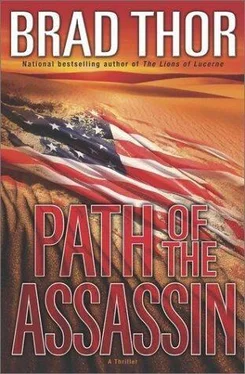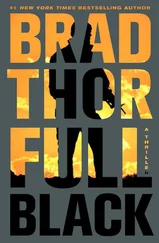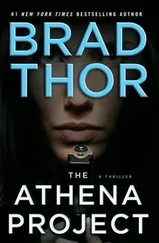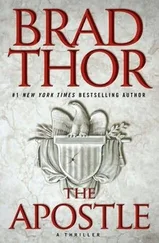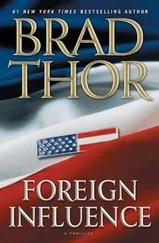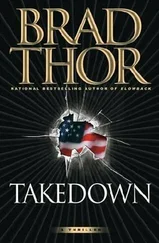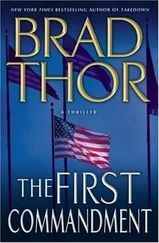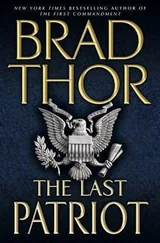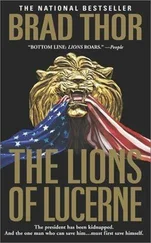Harvath reached for a croissant, and said, “I’m not following.”
“When I studied in Rome, we spent spring break on the island of Capri. There’s a story about how the prior of a local monastery created a perfume out of water from a vase filled with the island’s most beautiful flowers. When I was there, I bought some. It’s manufactured exclusively on the island from twenty-five different types of Capri flowers.”
“And that’s what Adara Nidal was wearing?”
“Yes. It’s called Caprissimo.”
“Maybe she knows someone who gets it for her. Maybe she bought it in a duty-free shop at the airport in Milan while changing planes.”
“There was also a picture of Capri in her study,” said Meg, impatient with Harvath for not following her train of thought.
“What picture?” answered Harvath, his mind racing back to one of the pictures that was still sticking with him, but for what reason, he didn’t know.
“There was a very provocative picture of her in a bathing suit on a yacht. I’m actually surprised you missed it.”
“Another picture had caught my attention. What did you see?”
“The one I saw showed Adara sunning herself on the back of a boat with the Faraglioni in the background.”
“What is the Faraglioni?”
“They’re three huge rocks jutting out of the ocean on the southern coast of the island.”
“Do you remember anything else about the picture?” asked Harvath. “Were there other people in it? Could you see the name of the boat, or anything else in the background?”
Meg was silent as she tried to remember the details of the photo.
“You saw Adara and you saw the Faraglioni,” said Harvath, trying to coax her memory. “How do you know she was on a yacht?”
“She was sitting on a long white leather banquette, and the picture was taken from out on the ocean looking back at the island.”
“What else did you notice? C’mon, Meg, think.” There had to be more. Something that could validate Schoen’s information and tell them that they were on the right track.
“I think the boat was either moving or it was windy.”
“Why?”
“There was a big red flag billowing off the back.”
“Were there other colors in it besides red?” asked Harvath.
“I don’t know. It was all red…except for a small green star.”
“Bingo. Morocco.”
“What is it? Do you know the boat?”
“I do now.”
The embassy’s CIA station chief found Meg Cassidy’s insights only somewhat interesting and said as much to Harvath. He reiterated that the CIA’s primary efforts were focused, exactly as they were before, on stopping Hashim Nidal, period.
When it became obvious that the station chief wasn’t going to be of any help, Harvath asked where he could find Morrell.
“He and his team left three hours ago.”
Harvath got a sinking feeling in his stomach. “Where did they go? Back to the Point?”
“Actually, we received reliable intelligence that Nidal may be headed for Syria.”
“Where’d that intelligence come from?”
“That’s classified,” replied the station chief.
“I’m part of this operation as well, so you can go ahead and fill me right in.”
“Not anymore you’re not.”
“What are you talking about?”
“You and Miss Cassidy have been officially retired from Operation Phantom.”
“By whom?”
“It came down from D.C. You’re done. You’re to stay here and review the Oxford material to try and ID Hashim Nidal’s female accomplice-”
“You mean his sister.”
“That has yet to be proven.”
“And proof is exactly why Miss Cassidy in particular was brought onboard this operation. How are Morrell and his team going to be one hundred percent sure they’ve got Hashim, even if they do find him in Syria?”
“We have a photograph.”
“From where?” said Harvath with a certain degree of amazement.
“Morrell’s team got a few still frames of video from the Robofly during the meeting at the Hijrah Oasis.”
“I didn’t hear anything about that in the debriefing.”
“It came up after you left.”
“Was asked to leave,” corrected Harvath.
“Nevertheless, based on the video stills and what the CIA has been able to gather, Mr. Morrell is confident that his team will be able to take care of Nidal. So, as you can see, they are no longer in need of your assistance.”
“You guys have no idea of the mistake you’re making.”
“Be that as it may, you’re to stay and review the Oxford material in an attempt to identify the woman in question, and then you’ll be flown back to the States via military transport.”
“First class all the way. That’s great. Fine. You guys do it your way. I need to use the bubble.”
“Again? What for this time?”
“I’m sorry,” said Harvath. “That’s classified.”
By the time Harvath was finally able to get through to Lawlor in the situation room at the White House, he had a lot to tell him. Their conversation took over half an hour, during which time Lawlor put Harvath on hold six times while he quickly placed other calls.
Within forty-five minutes of hanging up, an embassy staffer was driving Harvath and Meg to the port at La Goulette. Because of an Italian aviation strike, they had been booked on the Linee Lauro overnight ferry to Naples. That was something that never ceased to amaze Harvath about Europe. France, Italy, Greece-they all chose to strike at the busiest times of year, thereby inconveniencing the largest number of people. But at least the ferries were running, reasoned Harvath.
Buying a ferry ticket in Tunis on short notice, especially in the summer, was normally an impossibility, but the embassy was able to slice through the red tape. A local Tunisian official met the party at the port and sped Harvath and Meg, along with their new passports, right through passport control and customs.
Onboard, they were shown to a sizable first-class suite, with two double beds, overlooking the bow of the ship. By the time the vessel left port at nine P.M. and sailed out of the Gulf of Tunis, Harvath and Meg were already in the main dining room having dinner.
They made small talk as they ate. Harvath was a million miles away. She knew that in his mind he had already landed in Naples and was trying to plot their next move. Wanting to be respectful of his need for space, when dinner was finished, Meg excused herself and returned to their cabin.
Harvath downed a strong espresso and then found his way onto the deserted deck outside. The warm night air was still and smelled of the sea. Far below the railing, where Harvath rested his arms, the ship’s hull displaced a phosphorescent wake of foam. It was the only indication that they were moving. No lights ahead or astern of the ferry were visible. There was nothing but the empty blackness of the wide Mediterranean Sea.
Harvath closed his eyes and listened to the steady rush of water as the vessel plowed through the night toward Italy. He tried to fit together the pieces of everything that had happened. He was looking for a common theme, a thread of some sort. While they had learned a lot, they were still no closer to discovering what Adara Nidal and her brother had planned.
Scot Harvath and Meg Cassidy were still running far behind, playing a losing game of catch-up.
At three o’clock the next afternoon, the Linee Lauro ferry sailed into Naples’s harbor and docked at the Stazione Marittima opposite the Piazza Municipo. Harvath and Meg were among the first passengers to disembark.
Outside the terminal they quickly hailed a taxi. Harvath gave the driver the name of the Hotel Santa Lucia, and the cab swung out of the port and headed southwest beneath the shadow of the enormous Castel Nuovo.
Читать дальше
